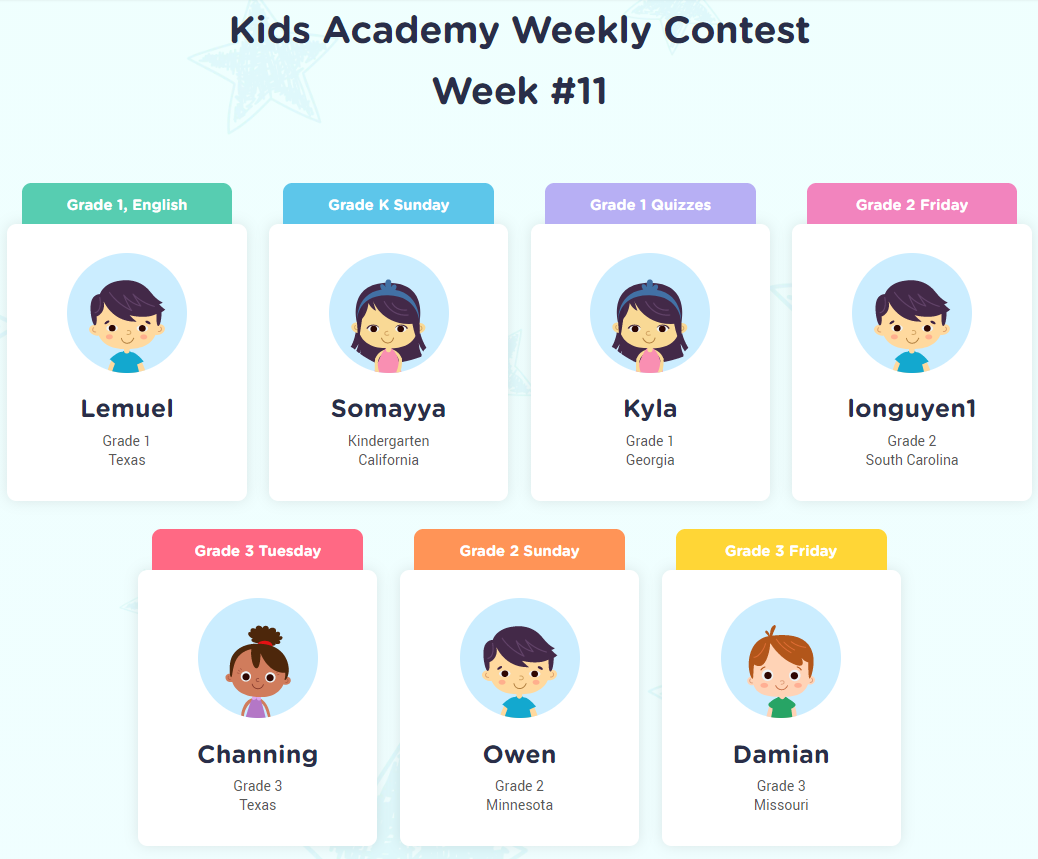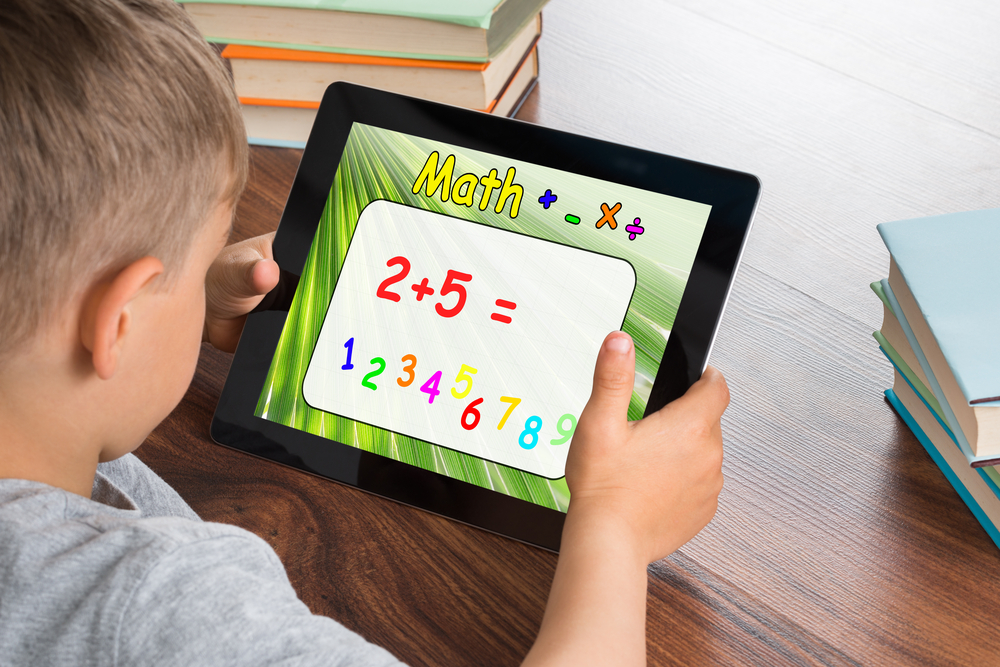Understanding suffixes Reading Worksheets for Ages 5-6
3 filtered results
-
From - To
Enhance your child's reading skills with our "Understanding Suffixes" Worksheets, designed specifically for children ages 5-6. These engaging worksheets help young learners grasp the concept of suffixes, transforming base words into new meanings. With fun activities that encourage creativity, critical thinking, and recognition of word patterns, kids will gain confidence in their reading abilities. Perfect for home or classroom use, these worksheets also make learning enjoyable! Spark your child’s interest in language and support their literacy journey with our comprehensive resources that combine play and education seamlessly. Explore our collection today and watch your little ones thrive!
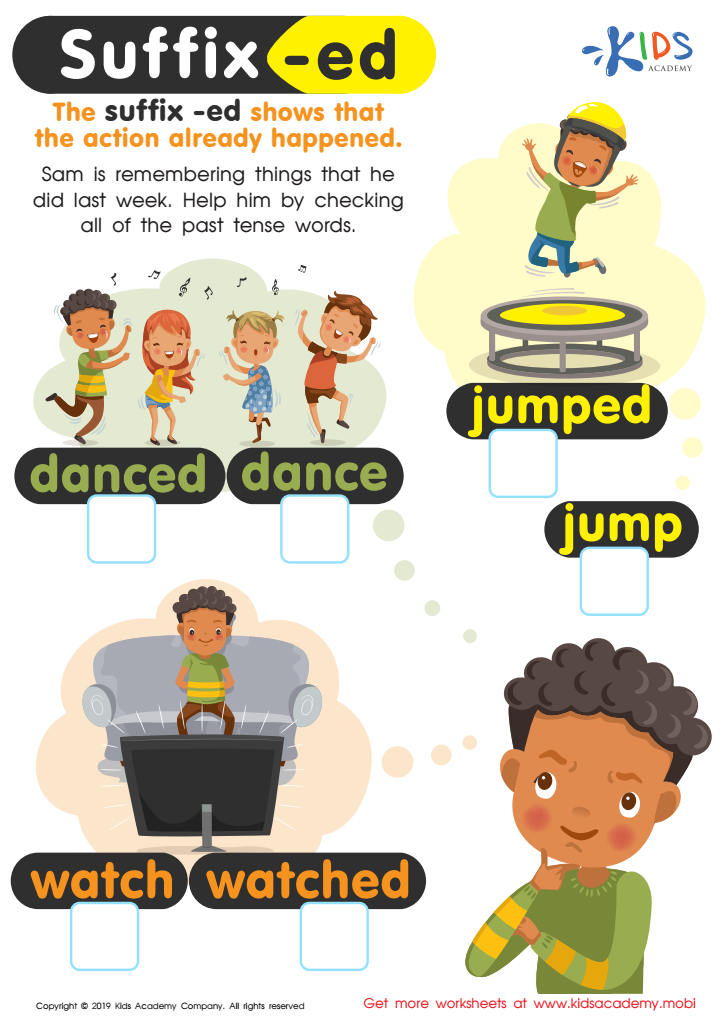

Suffix-ed Worksheet
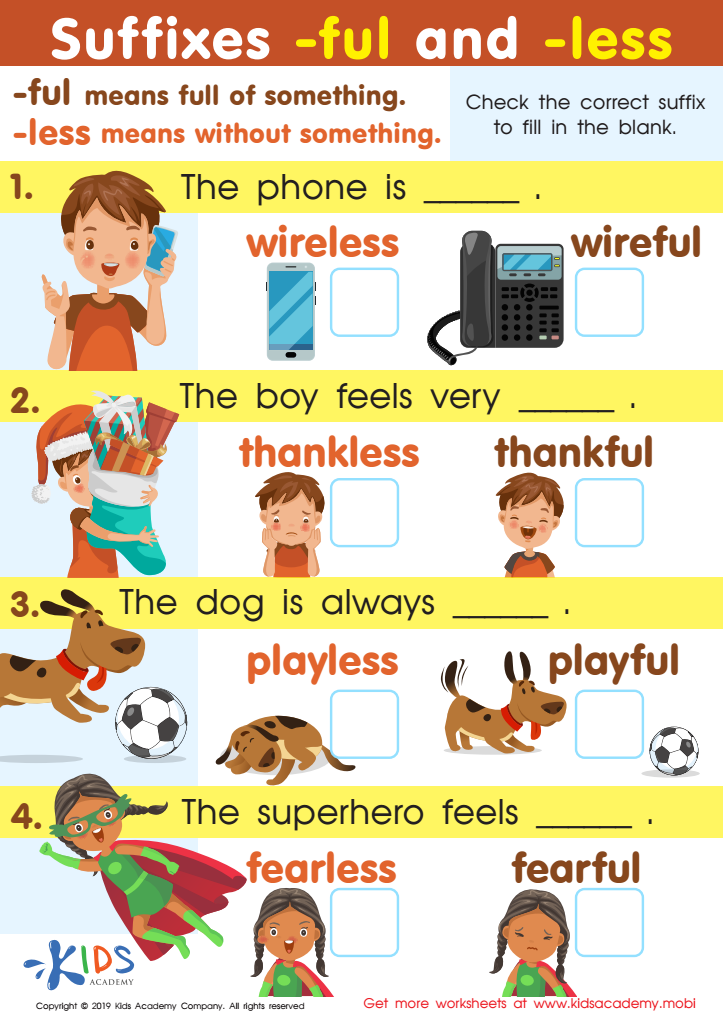

Suffixes –ful and –less Worksheet
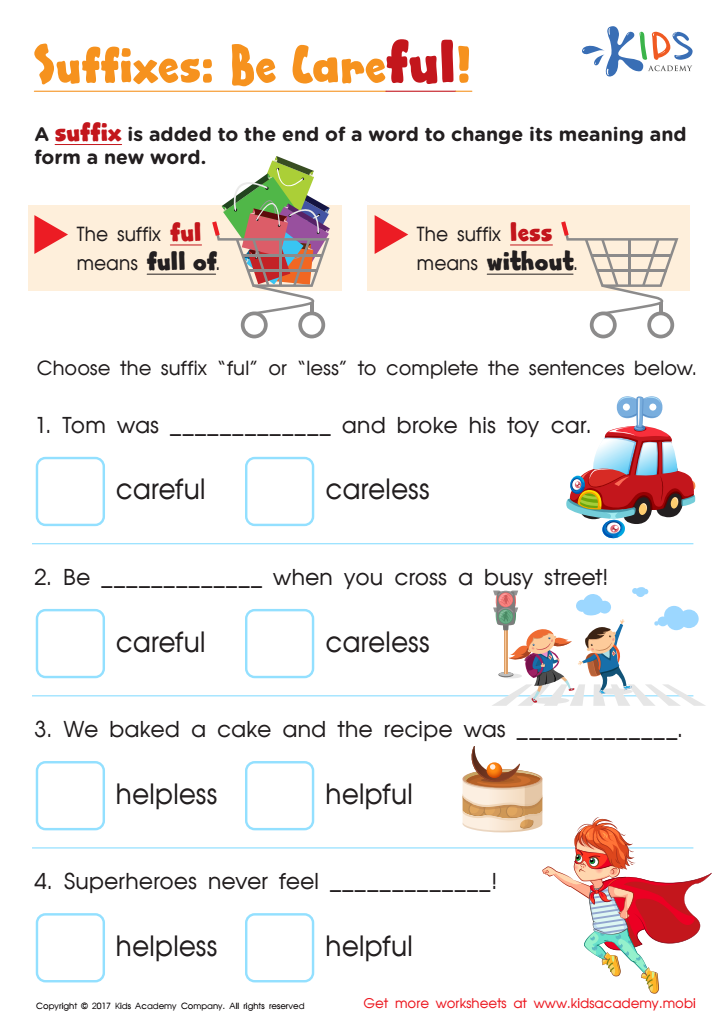

Suffixes Ful and Less Worksheet
Understanding suffixes is vital for early literacy development in children ages 5-6. Suffixes are critical building blocks of language that help kids make sense of words and expand their vocabulary. By learning how suffixes modify root words, children can decipher new words and comprehend their meanings more easily. For instance, understanding that “-ing” can indicate an action (running) or that “-ed” signifies past tense (played) enhances their reading fluency.
Parents and teachers play a crucial role in contextualizing suffixes within everyday language. Educators can incorporate playful activities, such as word games or story time, where suffixes are highlighted. When children encounter these suffixes in reading, they gain the tools needed to decode unfamiliar words independently, fostering confidence and motivation.
Moreover, an early grasp of suffixes lays the foundation for future language skills, facilitating reading comprehension and writing abilities. Since vocabulary development is linked to academic success, investing time in suffix understanding not only enriches a child's linguistic experience but also supports them in becoming proficient communicators. By prioritizing suffix knowledge, parents and teachers empower children to explore language, engage with texts, and ultimately set the stage for lifelong learning.
 Assign to My Students
Assign to My Students






